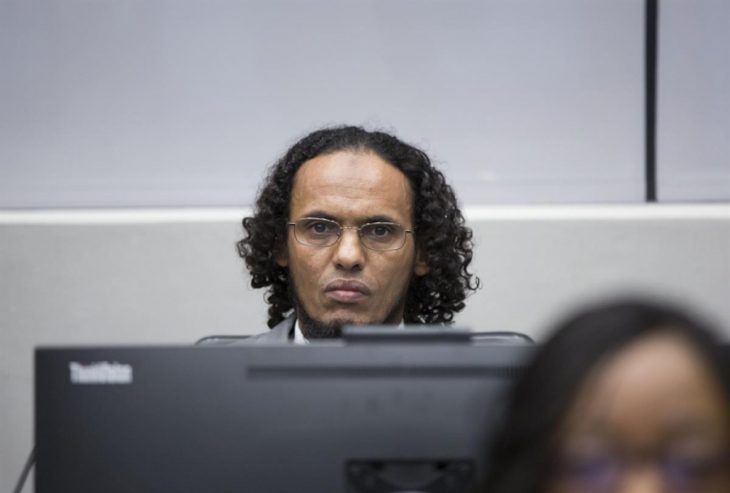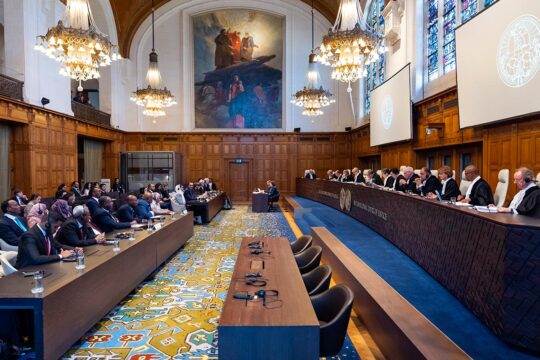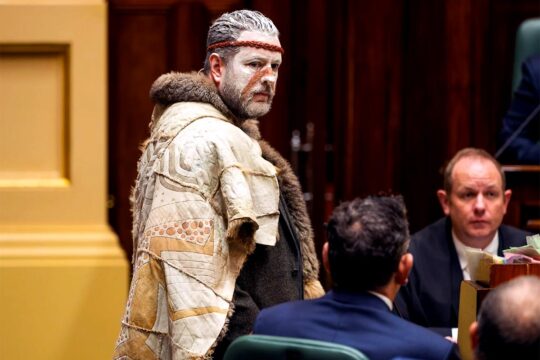For the first time in international criminal justice, an accused person was convicted, on September 27, for destruction of cultural and religious heritage. The day before saw another historic event as the Colombian government and Marxist rebels of the Armed Revolutionary Forces of Colombia (FARC) signed a peace deal to end half a century of armed conflict.
Dressed in immaculate white shirts and all smiles, Colombian President Juan Manual Santos and FARC leader Rodrigo Londoño (alias Timoleon Timochenko) shook hands, to the acclaim of regional leaders including Cuban President Raul Castro, whose country has been hosting the peace negotiations.
The Colombian people were called to the polls on Sunday for a referendum on acceptance of the peace deal. The agreement includes disarmament of the FARC and their transformation into a legal political party.
Although the accord has mostly been greeted with relief in Colombia, there is still plenty of criticism. Critics say, for example, that President Santos has given too many concessions to “criminals”. Such criticism has annoyed Pope Francis, among others. “First I would like to say that President Santos has risked all for peace,” he said in a video released on Friday September 30 in Bogota by the Colombian presidency. “But I must also say that I see some who would risk all by continuing the war. And that wounds the spirit.” The Pope also promised that once the accord has been sealed through the referendum and international recognition, he will visit Colombia.
At the International Criminal Court (ICC) in The Hague, September 27 saw another historic event with a judgment that marks a first on several counts. Jihadist Ahmed Al Faqi Al Mahdi, the first Malian to be indicted by the ICC, the first person to be brought before international justice for destruction of cultural and religious heritage and the first person to plead guilty before the Court, was sentenced to nine years in jail. This Malian Touareg pleaded guilty to the 2012 destruction of mausoleums in Timbuktu as a war crime. “Even if inherently grave, crimes against property are generally of less gravity than crimes against persons,” said presiding judge Raul Pangalangan. Based on expert testimonies, Timbuktu is a symbolic place that plays a special role in Islam for the region, the Filipino judge nevertheless reminded people. He said the destruction of the mausoleums was an act of war intended to destroy the soul of the people.
The next day, September 28, was a sad anniversary in Guinea, especially for those close to the people killed by security forces in the capital on that day in 2009. Six international and Guinean human rights organizations issued a joint statement condemning the fact that Guinea has still not brought justice for the crimes committed on September 8, 2009.
On that day, they remind people, more than 150 peaceful demonstrators were killed by security forces and more than 100 women raped. An investigation led by a pool of Guinean judges was opened in February 2010 but has still not concluded, despite some progress in recent months.
Finally to Tunisia, whose recent history shows that the silence dictators impose on their people also serves to hide the looting of public funds stashed in foreign bank accounts. So how can Tunisia recover these funds? Will it manage to get back the ill-gotten gains of the Ben Ali clan? Our Tunis correspondent Olfa Belhassine put the question to Ruben Carranza, Filipino director of the Reparations Program at the International Center for Transitional Justice (ICTJ) and an expert in tracking dictators’ money. He proposed a number of possible steps. “Tunisia needs to develop its ability to trace funds abroad,” Carranza told JusticeInfo. “Then it needs to find a way to force the ex-dictator’s relatives and those close to him, who have drawn big benefits from the system, to reveal the details of their bank accounts. And finally, in order to push European States to transfer ill-gotten gains, Tunisia needs to back up its requests with a programme of reparations for victims, because the Europeans have often argued against restoring money on grounds of corruption in the countries concerned. Providing compensation for the wrongs of the past in line with human rights values can be a powerful argument to recover the assets of the former dictatorship.”







